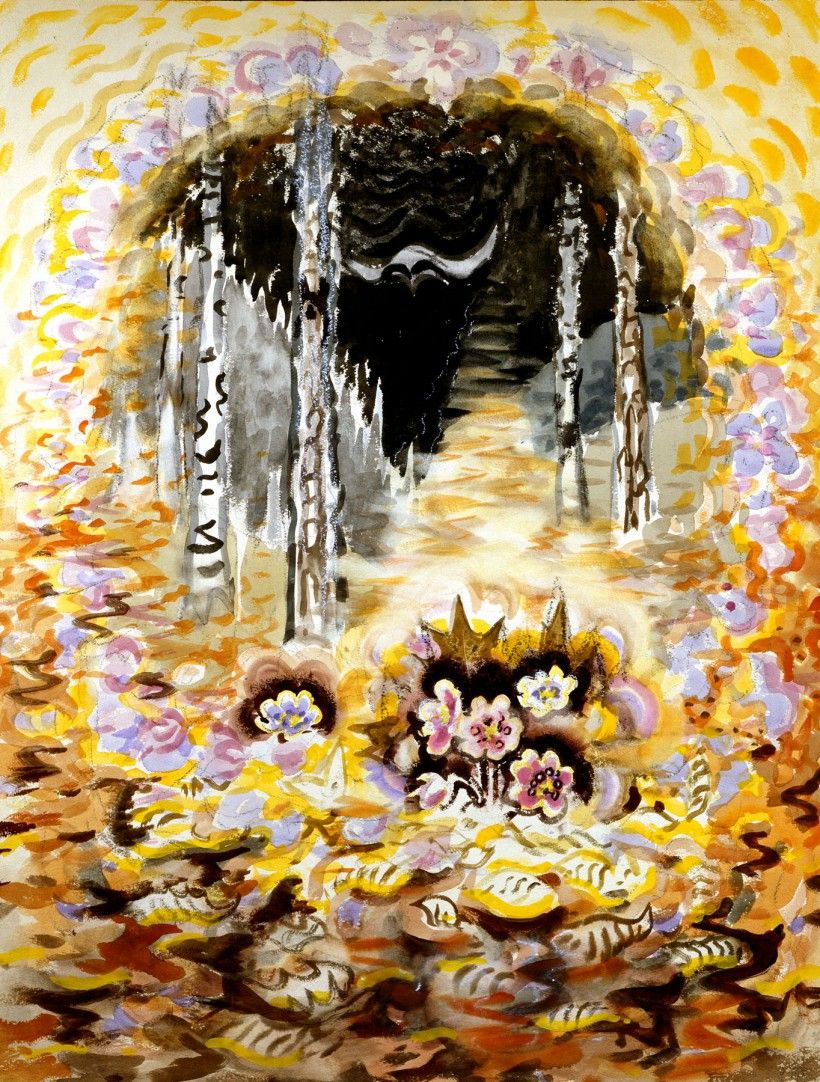Imaginary Landscapes
Charles Burchfield was an American painter and visionary artist known for his watercolors of natural scenes and townscapes.
Burchfield was born and raised in Ohio in 1893 and many of his early works and journal entries depict that area. His works are often divided into three periods: his early landscapes from his teen years and through his time at the Cleveland School of Art until 1919, then until 1943 he depicted townscapes and industrial depictions of Buffalo where he spent his adult life, and then until his death in 1967 he went back to landscapes inspired by his youth.


While he gained fame and recognition for the works done in his middle period, he was always more inspired by the sounds and colors and emotions he found in the natural world. He thought he lost something during this middle period so in his later life he took to painting over the simple landscapes of his youth, sometimes even physically adding more paper to the edges, and creating something new and imaginative. This experiment to combine realism with fantasy is what Burchfield is really known for today. He often said that he was more inspired by music than other artists, and this attempt to get movement and sound in his work is shown through his vibrant colors and repetition with lines.
Burchfield was inspired by the world around him, whether manmade or natural. This was his constant subject and he thrived on this familiarity, much like Andrew Wyeth was inspired by the world and subjects of the Brandywine. These artists had similar motivations in their work and I think Burchfield’s fantastic landscapes will feel right at home in our museum.


To accompany the exhibition, the museum is having a free family program on Sunday October 5th from 10 a.m. to noon as a part of PNC Arts Alive First Sundays for Families. Come be inspired by Burchfield’s love of painting and music and express yourself through imaginative art projects set to music during this colorful workshop.
